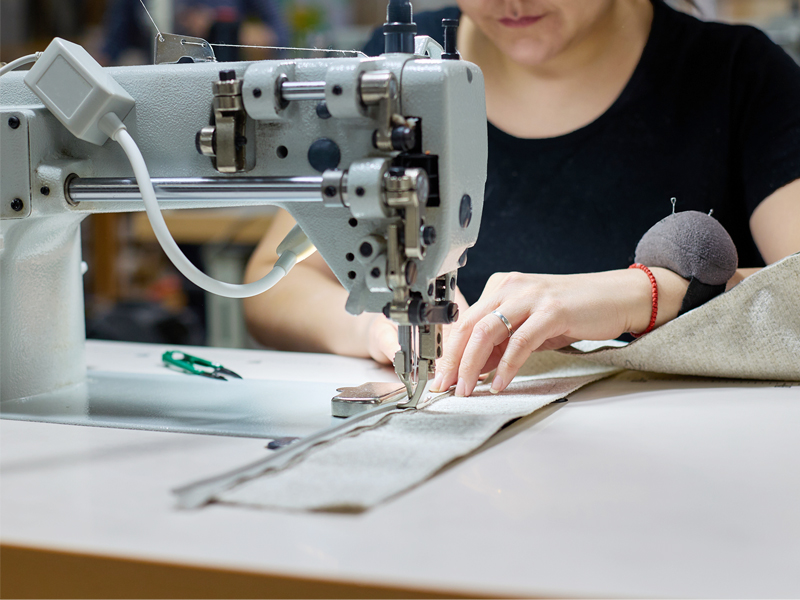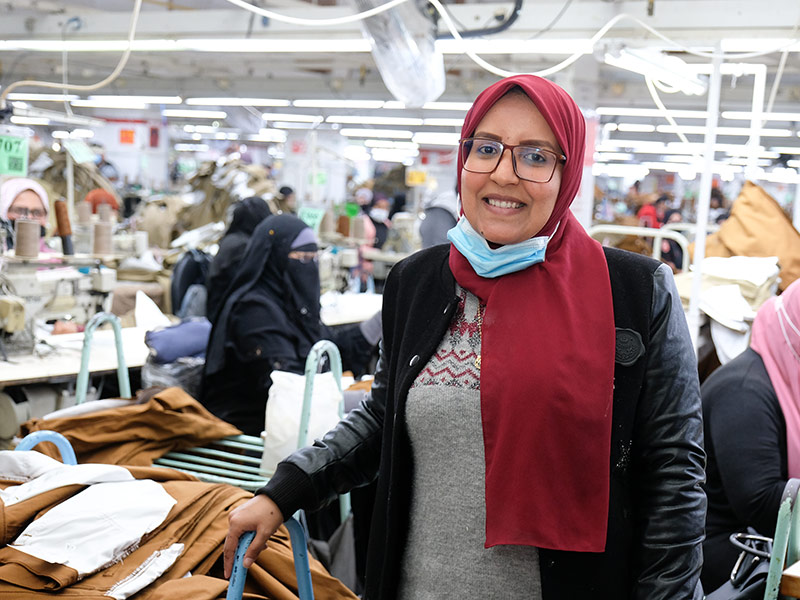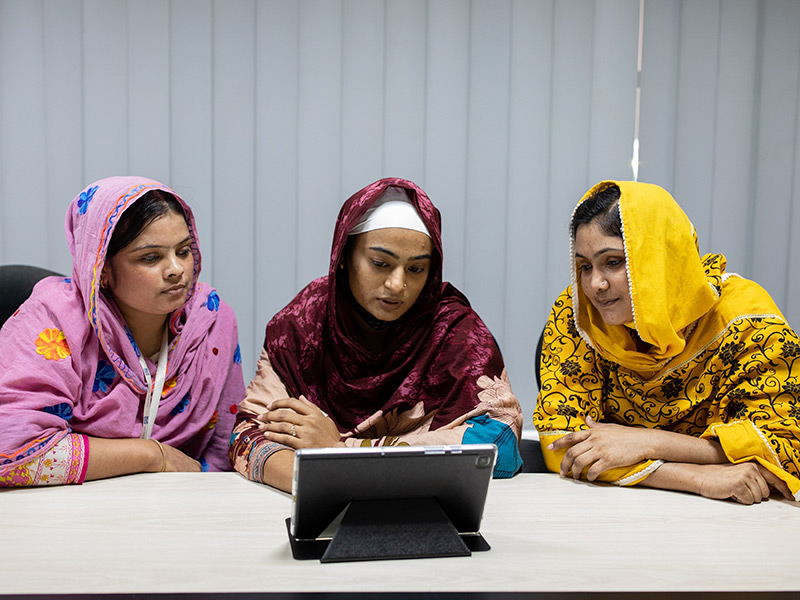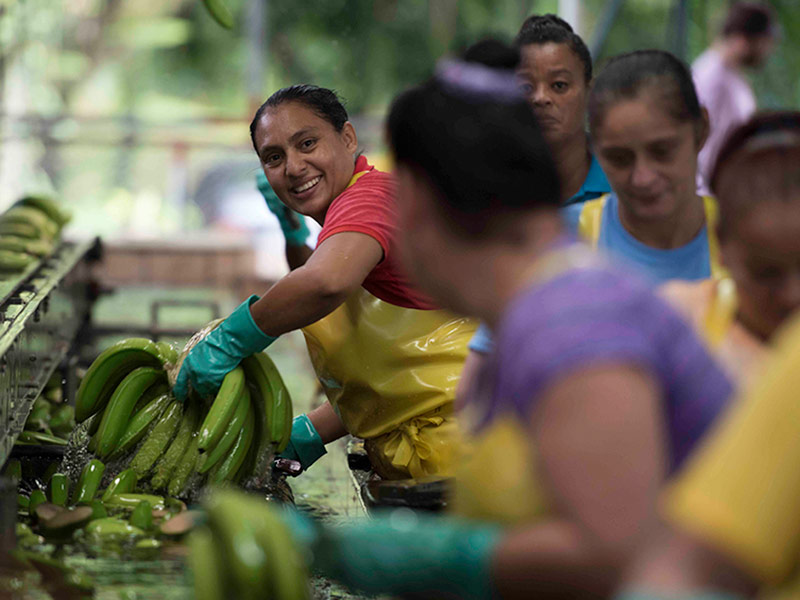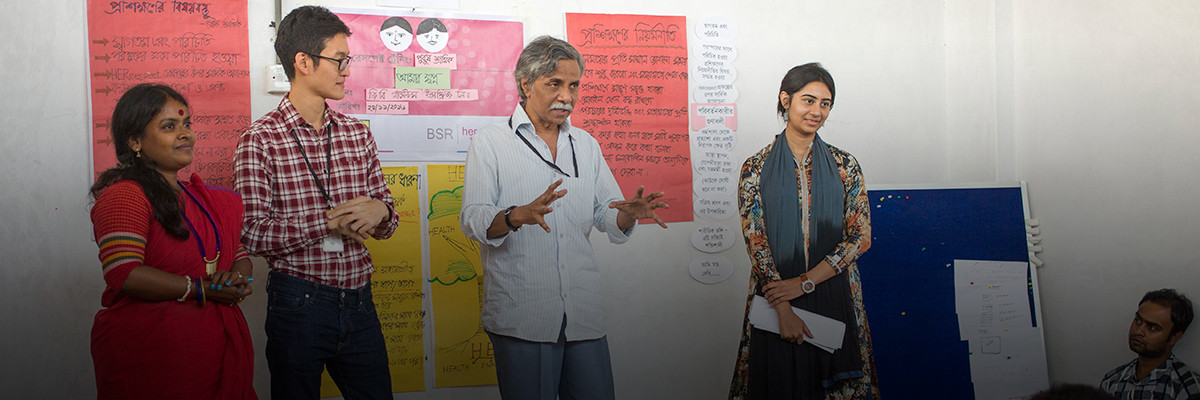
Authors
-
Elissa Goldenberg
Former Manager, BSR
At a pilot factory for the BSR HERproject in Bangladesh, a male supervisor has seen for himself the benefits of our peer-to-peer, workplace-based training initiative. “I am more supportive of my workers attending trainings and more willing to give them time to go because not only do I see the impact it has on their attitudes and behavior, but I am also receiving trainings myself,” he said.
This kind of statement and engagement from a male supervisor is a good sign for women’s empowerment. From its beginning in 2007, HERproject has consistently worked to address challenges facing low-income women workers in global supply chains. As such, women have always been at the heart of HERproject. But it has become increasingly clear that for women to be able to make and act on choices they value, support from men—as coworkers, as managers, and as family members—is vital.
As we celebrate HERproject’s 10th anniversary, we are therefore reflecting on how we can continue to work with men—particularly when it comes to whether and how to integrate men into training programs, and how we can actively encourage male workers to advocate for women’s empowerment. In considering this, we have taken a step back to look at how men influence the different issues covered in our HERproject programs, including violence against women, access to health, and financial inclusion.
With the launch of HERrespect in 2016, we began tackling one area where working with both men and women is imperative: changing the gender and social norms that underpin violence against women. Through HERrespect, we’re providing training to both men and women, including workers and managers, to help them improve their communication skills and recognize how harmful gender stereotypes affect women at work and at home. Prior to formalizing male engagement in this program, men had demonstrated an interest in the trainings. Giving men the space to talk about issues related to gender norms, their relationships at home and at work, and violence against women has helped them become allies in promoting gender equality. Not only have we seen men actively engaging in the trainings themselves, but many say they are making personal changes—from how they interact with their wives to how they support their female colleagues in the workplace.
We also looked at another one of our programs, HERfinance, through which peer educators share lessons on budgeting and saving money. In that program, we identified a need to equally engage men in order to overcome some of the cultural barriers that may keep women from applying what they learn. While the HERfinance lessons can help women make a real difference in their lives and those of their families, in some countries, women are expected to hand over their salary to their husbands, or they are unable to contribute to decision-making about family finances. To address this, we offer HERfinance training to both men and women that focuses on the importance of collective decisions regarding family finances. In doing so, we ensure that men have access to critical information regarding the management of their own finances; they also receive knowledge and develop skills that augment the impact of the program on women.
Through implementation of HERhealth in Bangladesh and Kenya, we have learned that men can also play direct and indirect roles in empowering women workers to take control of their health. In Bangladesh, most of the top and middle managers are men, which makes their support and buy-in crucial to ensure work time is given for our training programs. Male managers can also be champions in improving access to health services by making sanitary napkins available in factories or developing partnerships with nearby hospitals or clinics.
In Kenya, the engagement of men in HERhealth is even more direct. We include men in the peer health educator selection process so that men and women receive the same lessons and understand that women’s health and family health is a shared responsibility. This is helping break the taboos associated with masculinity and family planning. Some women have told us that they hide their family-planning methods from their husband due to concerns that their husband would disagree with their choice and assault them. By inviting men, the traditional decision-makers, to trainings, HERhealth is slowly breaking down some of these barriers. In our trainings—which take place in a shared, inclusive space—we aim to help men understand why they should care about family-planning methods, and how engaging in these discussions with their partner can help their family make the best choices.
The issues we aim to address through HERproject are complex and often deeply rooted in gender norms. Engaging directly with men helps us maximize the impact of our program. Through the development and pilot of HERrespect and through the expansion of HERfinance, we’ve formalized male engagement as a key component of our programs. Now we are excited to build on these lessons to shape the continued contribution and engagement of men throughout HERproject. As we pursue this objective, we invite all of our partners and others to share their feedback and ideas.
Topics
Collaborative Initiatives
Let’s talk about how BSR can help you to transform your business and achieve your sustainability goals.
